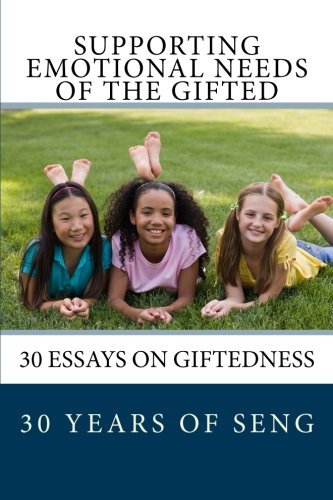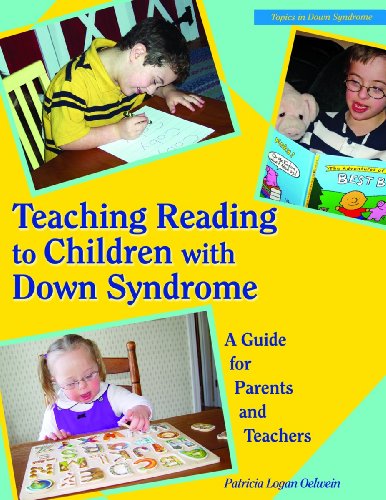Top 7 recommendation emotional needs in relationships 2019
When you looking for emotional needs in relationships, you must consider not only the quality but also price and customer reviews. But among hundreds of product with different price range, choosing suitable emotional needs in relationships is not an easy task. In this post, we show you how to find the right emotional needs in relationships along with our top-rated reviews. Please check out our suggestions to find the best emotional needs in relationships for you.
Best emotional needs in relationships
1. Why Smart Kids Worry: And What Parents Can Do to Help
Feature
Used Book in Good ConditionDescription
"Therapist Edwards brings profound insight into the minds of gifted, anxious children in this parent-friendly handbook" Publishers Weekly, STARRED
Being the parent of a smart child is great?until your son or daughter starts asking whether global warming is real, if you are going to die, and what will happen if they don't get into college. Kids who are advanced intellectually often experience fears beyond their years. And parents are left asking, why does my child worry so much?
In this practical parenting resource, Allison Edwards guides you through the mental and emotional porcess of where your child's fears come from and why they are so hard to move past. For emotionally intelligent, observant, and inquisitive children who want to overcome anxiety, and for parents looking for a kid-friendly toolkit, Why Smart Kids Worry is the perfect resource that gives answers to questions such as:
- How do smart kids think differently
- What is the root of my child's anxiety and how can we overcome it?
- Should I let my child watch th enightly news on TV?
- How do I answer questions about terrorist, hurricanes, and other scary subjects?
Edwards' fifteen specially designed tools help smart kids manage their fears, anxieties, and become more worry-free.
2. Emotional Intensity in Gifted Students: Helping Kids Cope with Explosive Feelings
Feature
Emotional Intensity in Gifted Students Helping Kids Cope with Explosive Feelings 2nd edDescription
Teaching children how to manage their intense emotions is one of the most difficult aspects of parenting or educating gifted children. Emotional Intensity in Gifted Students: Helping Kids Cope With Explosive Feelings provides a much-needed resource for parents and educators for understanding of why gifted children are so extreme in their behavior and how to manage the highs and lows that accompany emotional intensity. Presented in an easy-to-read, conversational style, this revised and updated second edition contains additional chapters addressing temperament and personality development, as well as expanded role-plays and strategies designed to show parents and teachers how to interact and guide gifted children in a way that teaches them how to recognize, monitor, and adjust their behavior. Updated resources and worksheets make this practical resource a must-read for anyone wishing to make a positive and lasting impact on the lives of gifted children.
3. Letting God Meet Your Emotional Needs
Feature
ISBN13: 9780736910958Condition: New
Notes: BRAND NEW FROM PUBLISHER! 100% Satisfaction Guarantee. Tracking provided on most orders. Buy with Confidence! Millions of books sold!
Description
Women long to be loved, to be known, to be understood. But who can meet those needs at their deepest level? Only the One who created women--who knows them by name and who designed them--can bring fulfillment that truly satisfies.
Letting God Meet Your Emotional Needs shows how God desires to help every woman:
- I need acceptance... God loves, forgives, and accepts
- I need security... God promises He will never leave
- I need to feel pretty... Christ sees me as new, spotless
- I need a companion... He is the perfect friend
- I need communication... He talks to me intimately through His Word
Formerly Heart Hunger.
4. Supporting Emotional Needs of the Gifted: 30 Essays on Giftedness, 30 Years of SENG
Description
To celebrate its 30th anniversary, Supporting the Emotional Needs of the Gifted (SENG) offers a collection of 30 essays from leading experts in the gifted community. The essays provide an overview and resource for anyone who works with or cares for the gifted, from gifted adults and teens to parents of gifted children, educators, counselors or medical professionals. Some of the topics include:- parenting gifted children
- living with the intensity that often accompanies giftedness
- counseling and educating gifted individuals
- giftedness in diverse communities and special needs populations
- the role of teachers and other professionals in the lives of the gifted
- first-person essays describing the challenges and joys of giftedness in children and adults
Table of Contents
Introduction
PART I: THE SENG DIFFERENCE
Coming Full-Circle, by Jane Hesslein
SENG's 25th Anniversary Conference: Reflections onSENG's History, by James T. Webb
SMPG: My Gifted Education, by Carol Raymond
What SENG Means to Me: Perspectives from SENG's First Executive Director, by Amy Price
PART II: UNDERSTANDING GIFTEDNESS
Overexcitability and the Gifted, by Sharon Lind
Asynchronous Development, by Jean Goerss
Young Gifted Children, by Beverly Shaklee
Teasing and Gifted Children, by Patricia Schuler
Sylvia Rimm on Perfectionism in the Gifted, by Michael Shaughnessy
Can We Capture and Measure the Creativity Beast?, byRose Blackett
PART III: NOT JUST FOR PARENTS
GT Kids and Behavior: Seven Strategies to Help Kids (and Parents) Cope, by Christine Fonseca
Using Books to Meet the Social and Emotional Needs of Gifted Students, by Judith Wynn Halsted
Encouraging Emotional Intelligence, by Stephen Pfeiffer
Parenting Twice-exceptional Children, by Dina Brulles
September Back-To-School Suggestions, by Wenda Sheard
Gifted Education: What I Wished I Had Known Sooner!, by Carolyn Kottmeyer
Finding the Glory - On and Off the Playing Field, by Linda Neumann
Helping Your Gifted Child Through Divorce, Part 1, by Lori Comallie-Caplan
Helping Your Gifted Child Through Divorce: Part 2, by Lori Comallie-Caplan and Marc Caplan
Where Does a Pediatric Doctor Fit in the Care of Gifted Children?, by Marianne Kuzujanakis
One More Door...a personal challenge, by Sheri Plybon
PART IV: FIRST-PERSON GIFTED
Resilient Hispanic Women, by Rosina M. Gallagher
The Hardships of Being Gifted in Culturally Diverse Populations, by Tiombe Kendrick
The Best of Both Worlds: On Being Indian, byVidisha Patel
Rising to Juilliard: A Profile of a Gifted Young Actor
Under the Spell of Words, by Angela Arenivar
Through His Eyes and Through His Mother's Eyes, by Joseph and Holly Hughes
Why We Homeschooled, by Lisa Rivero
Benny and Me: A Father Sees Himself Through His Son, by Michael Postma
Dear SENG: "Gifted Adults" - A Personal Experience, by Helen Prince
5. The Kids' Guide to Staying Awesome and In Control: Simple Stuff to Help Children Regulate their Emotions and Senses
Feature
Jessica Kingsley PublishersDescription
Packed with simple ideas to regulate the emotions and senses, this book will help children tackle difficult feelings head-on and feel awesome and in control!
From breathing exercises, pressure holds and finger pulls, to fidgets, noise-reducing headphones and gum, the book is brimming with fun stuff to help kids feel cool, calm and collected. They will learn how to label difficult feelings, choose the perfect strategies and tools to tackle them, and use these correctly whether at home or at school. The strategies and tools are accompanied by cartoon-style illustrations, and the author includes useful tips for parents and teachers as well as handy visual charts and checklists to track learning and progress.
Armed with this book, kids will be well on their way to managing difficult emotions and feeling just right in whatever situation life throws at them! Suitable for children with emotional and sensory processing difficulties aged approximately 7 to 14 years.
6. Teaching Reading to Children With Down Syndrome: A Guide for Parents and Teachers (Topics in Down Syndrome)
Feature
Woodbine HouseDescription
Teach your child to read using the author's nationally recognized, proven method. From introducing the alphabet to writing and spelling, the lessons are easy to follow. The many pictures and flash cards included appeal to visual learners and are easy to photocopy!7. Parenting a Child Who Has Intense Emotions: Dialectical Behavior Therapy Skills to Help Your Child Regulate Emotional Outbursts and Aggressive Behaviors
Feature
Used Book in Good ConditionDescription
Temper tantrums in the supermarket. Tears that seem to come out of nowhere. Battles over homework that are more like wars. When your child has problems regulating his or her emotions, there's no hiding it. Children with intense emotions go from 0 to 100 in seconds and are prone to frequent emotional and behavioral outbursts that leave parents feeling bewildered and helpless.
Other parents may have told you that it's just a phase or that your child needs discipline. In reality, your child may have emotion dysregulation, a tendency to react intensely to situations other children take in stride. Parenting a Child Who Has Intense Emotions is an effective guide to de-escalating your child's emotions and helping your child express feelings in productive ways. You'll learn strategies drawn from dialectical behavior therapy (DBT), including mindfulness and validation skills, and practice them when your child's emotions spin out of control. This well-researched method for managing emotions can help your child make dramatic emotional and behavioral changes that both of you will be proud of.










Recent Comments